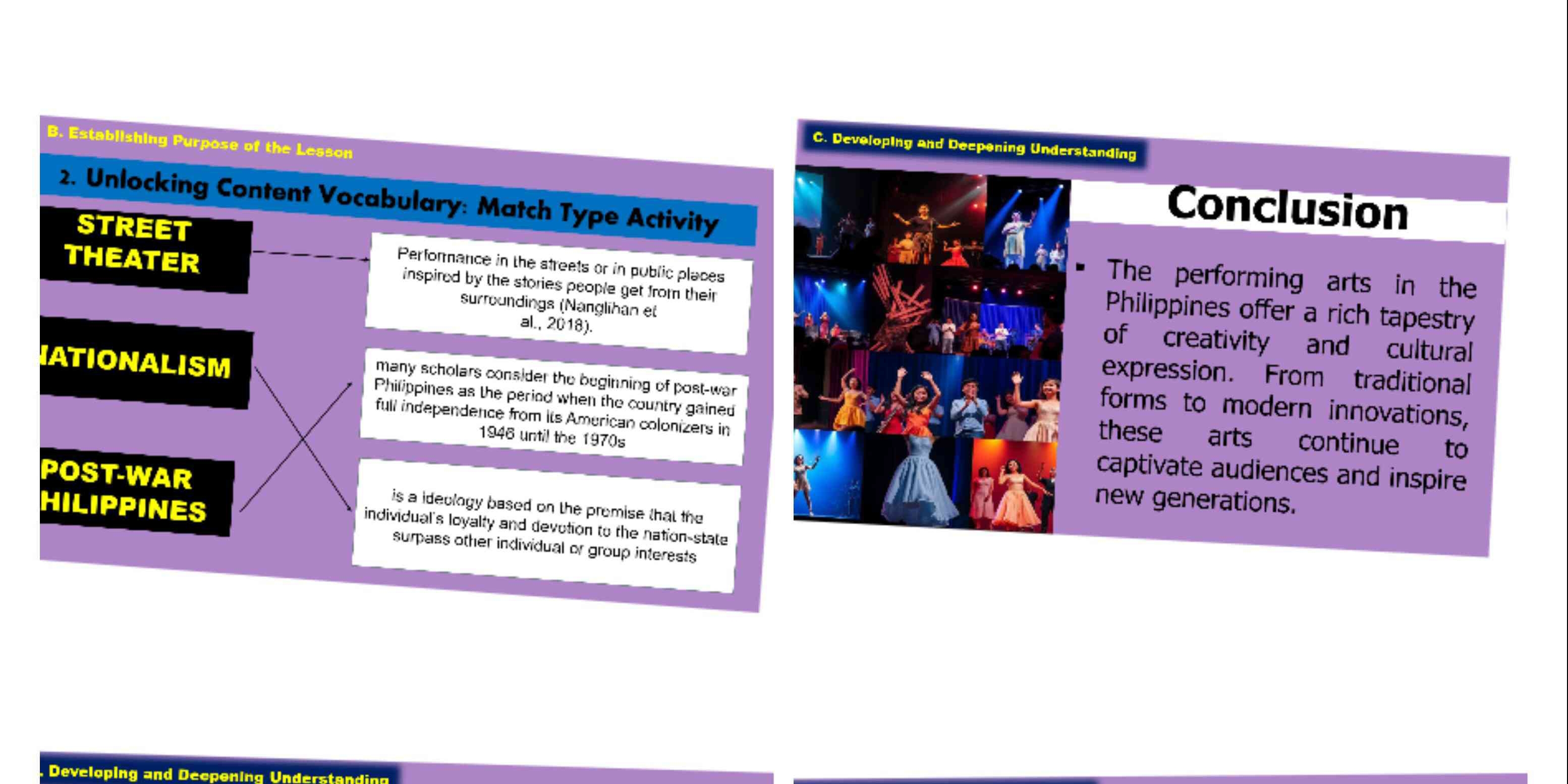What is the significance of street theater and nationalism in the context of the performing arts in post-war Philippines?

Understand the Problem
The content presented in the image discusses street theater, nationalism, and post-war Philippines in relation to the performing arts. It highlights the cultural significance and evolution of these arts in a historical context.
Answer
They were tools for cultural expression and protest, promoting national identity and addressing societal issues.
Street theater and nationalism in post-war Philippines served as tools for cultural expression and protest. Street theater engaged public spaces to narrate societal issues, while nationalism influenced the arts to reflect anti-colonialist sentiments and promote national identity.
Answer for screen readers
Street theater and nationalism in post-war Philippines served as tools for cultural expression and protest. Street theater engaged public spaces to narrate societal issues, while nationalism influenced the arts to reflect anti-colonialist sentiments and promote national identity.
More Information
Post-war, the Philippines used theater to challenge colonial influences and assert national identity, with street performances directly addressing the public.
Tips
A common mistake is to assume street theater is solely entertainment; it's also a medium of protest and social commentary.
Sources
- Protest theatre in the Philippines - Wikipedia - en.wikipedia.org
- The Role of Contemporary - Philippine Theatre in the Formation - jstor - jstor.org
- Nationalistic Music and Arts in the Post-war Philippines ... - Raena AI - app.raena.ai
AI-generated content may contain errors. Please verify critical information